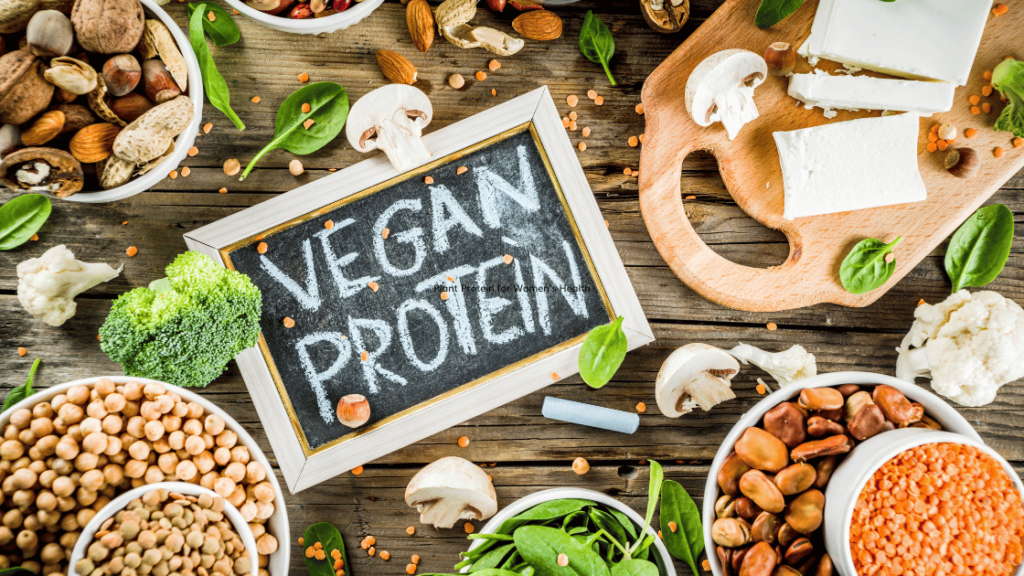10 Fruits for Your Gym Diet: Fuel Your Fitness

The right nutrition plays a crucial role in supporting workout performance and achieving fitness goals. By fueling your body with the appropriate nutrients, you can enhance energy levels, improve recovery, and optimize muscle growth. In this article, we will explore 10 fruits that are highly beneficial for a gym diet. These fruits can be incorporated into your pre and post-workout meals to provide essential nutrients for your fitness journey. Whether you are looking to boost your energy before hitting the gym or aid in muscle recovery after a strenuous workout, these fruits offer a natural and effective way to support your fitness goals. Key takeaway: By incorporating these fruits into your pre and post-workout meals, you can enhance energy levels, improve recovery, and optimize muscle growth.
1. Fueling Your Body Before a Workout
Importance of Pre-Workout Nutrition
Before you start exercising, it’s important to give your body the right nutrients to perform at its best and prevent muscle breakdown. Eating a balanced meal or snack before your workout can give you the energy you need to complete your routine.
What Role Do Carbs Play in Pre-Workout Fuel?
Carbohydrates are an important source of energy for your body, especially during exercise. They help maintain your blood sugar levels and provide fuel for your muscles. Complex carbohydrates, which are found in certain fruits, are a great choice for pre-workout nutrition because they release energy slowly and steadily.
Fruits That Are High in Complex Carbs for Pre-Workout Fuel
Here are some fruits that are rich in complex carbohydrates and can be included in your pre-workout meals or snacks:
- Bananas: Bananas contain natural sugars like glucose, fructose, and sucrose, which give you a quick energy boost. They also have resistant starch, a type of carbohydrate that helps keep your blood sugar levels stable and provides long-lasting energy.
- Oranges: Oranges are packed with natural sugars and fiber, which give you both immediate energy and sustained fuel. The high vitamin C content in oranges also supports your immune system, which is important during intense physical activity.
- Mangoes: Mangoes are a delicious source of complex carbohydrates. They’re high in fiber, vitamins, and minerals, making them an excellent choice for pre-workout fuel.
Incorporating these fruits into your pre-workout meals or snacks can ensure that your body gets the carbohydrates it needs to perform well during exercise while promoting overall health and well-being. 
2. Consuming Fruits Before a Workout
Benefits of Pre-Workout Fruits
Choosing fruits as a pre-workout snack offers several benefits:
- Hydration Support: Fruits have high water content, which helps keep you hydrated during exercise.
- Vitamins and Minerals: Fruits are a natural source of essential nutrients that contribute to your overall health and well-being.
Easily Digestible Carbohydrates
Fruits contain easily digestible carbohydrates that provide quick energy for your workout:
- This means that your body can absorb and use the carbohydrates from fruits efficiently while exercising.
- Unlike heavy meals, fruits are less likely to cause digestive issues during physical activity.
By incorporating fruits into your pre-workout routine, you can:
- Take advantage of their hydrating properties
- Fuel your workout with readily available energy
- Support your physical performance and fitness goals
3. Refueling After a Workout
Post-workout nutrition plays a crucial role in helping your muscles recover and repairing tissue damage after intense physical activity. It is important to replenish nutrients to support your body’s recovery process and promote muscle growth. This is where the right mix of carbohydrates and protein becomes important.
Importance of Nutrient Replenishment
After a workout, your body’s energy stores are used up, and your muscles experience stress that results in tiny tears. Consuming the right nutrients after your workout can help in fixing these tears and refilling the energy you’ve used, getting you ready for your next exercise session.
Role of Carbohydrates
Carbohydrates are necessary for refilling glycogen stores in your muscles and liver, which act as the main source of fuel for endurance activities. Including carbohydrates in your post-workout meal helps in replenishing these stores, making sure you have enough energy for your next training session.
Significance of Protein
Protein is important for muscle protein synthesis, which is basically the process of repairing and rebuilding muscle fibers that have been broken down during exercise. Consuming protein after a workout provides the essential amino acids needed to support this repair process, ultimately leading to muscle growth and improved recovery. By focusing on a balanced mix of carbohydrates and protein in your post-workout meals, you can effectively support your body’s recovery process, reduce muscle soreness, and optimize your overall fitness progress.
4. 10 Healthy Fall Foods for Muscle Growth and Repair
When it comes to fueling your fitness goals, nutrition plays a crucial role. Incorporating the right foods into your gym diet can enhance energy levels, improve recovery, and optimize muscle growth. In this section, we will explore 10 healthy fall foods that are packed with nutrients to support muscle growth and repair.
4.1 Winter Squash
One of the star fall vegetables is winter squash. This versatile vegetable not only adds a burst of flavor to your meals but also offers numerous health benefits. Here’s why you should consider adding winter squash to your gym diet:
- High in Vitamin A: Winter squash is rich in vitamin A, which supports immune function and helps maintain healthy vision.
- Excellent Source of Fiber: With its high fiber content, winter squash promotes digestive health and keeps you feeling full for longer periods.
- Low in Calories: If you’re watching your calorie intake, winter squash is a great option as it is low in calories while still providing valuable nutrients.

4.2 Pumpkin
Pumpkin isn’t just for carving during Halloween; it’s also a fantastic addition to your gym diet. Here are some reasons why pumpkin deserves a spot on your plate:
- Rich in Antioxidants: Pumpkin is packed with antioxidants like beta-carotene, which may help reduce inflammation and protect against chronic diseases.
- Potential Anti-Inflammatory Effects: The antioxidants found in pumpkin have been linked to potential anti-inflammatory effects, which can aid in post-workout recovery.
- Versatile Ingredient: From roasted pumpkin to pumpkin smoothies, there are countless ways to incorporate this fall favorite into your gym meals.
Fall is a season of abundance when it comes to delicious and nutritious fruits that can support your muscle growth and repair. One such fruit that shines during this time is the pumpkin, offering a myriad of health benefits to fuel your fitness journey.
Pumpkin Benefits
- Rich Antioxidant Profile: Pumpkin is packed with antioxidants like beta-carotene, which can help neutralize free radicals in the body, supporting overall health and well-being.
- Anti-inflammatory Effects: The compounds found in pumpkin have been linked to potential anti-inflammatory effects, aiding in post-workout recovery and reducing exercise-induced inflammation.
By incorporating pumpkin into your gym diet, you can take advantage of its unique nutritional properties to enhance your sports performance and support your fitness goals. 
4.3 Apples
An apple a day keeps the doctor away – and it can also support your fitness goals. Here’s why apples are an excellent choice for muscle growth and repair:
- Promote Cardiovascular Health: Apples contain antioxidants and soluble fiber, which have been linked to reducing the risk of heart disease.
- Supply Antioxidants: The natural antioxidants found in apples can help combat oxidative stress caused by intense workouts.
- Convenient and Portable: Whether you grab a fresh apple before hitting the gym or use sliced apples as a topping for your post-workout snack, they are a convenient and nutritious choice.
healthy fall foods, muscle growth and repair, calories benefits, winter squash benefits, enhanced sports performance, Brief introduction to the concept of seasonal eating and how it can provide unique nutritional benefits., List of 10 fall-inspired fruits that are not only delicious but also support muscle growth and repair, along with their specific health properties., apple benefits Talking points:
- In-depth look at the nutritional benefits of apples, such as their role in promoting cardiovascular health and supplying antioxidants to the body.
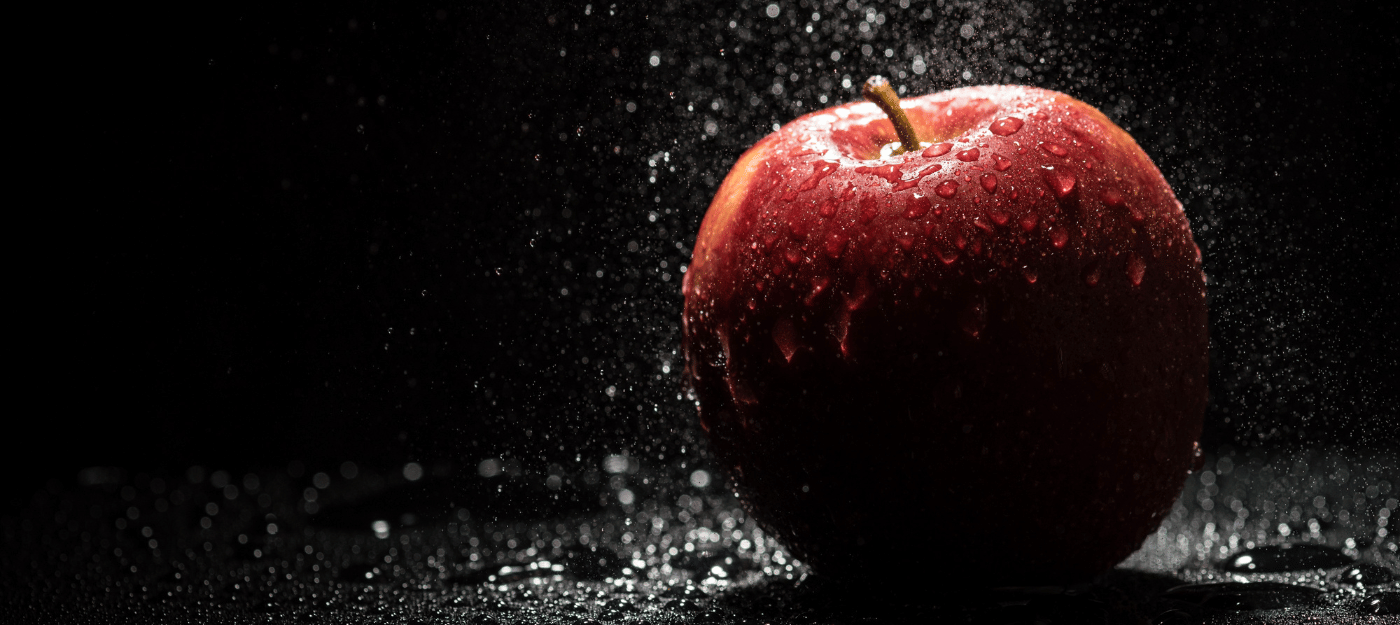
4.4 Cranberries
Cranberries are often associated with Thanksgiving, but their health benefits extend far beyond the holiday season. Consider including cranberries in your gym diet for the following reasons:
- Support Urinary Tract Health: Cranberries contain compounds that can help prevent urinary tract infections and support overall urinary tract health.
- Provide Vitamin C: With their high vitamin C content, cranberries contribute to a healthy immune system, which is important for optimal performance during workouts.
- Versatile Ingredient: Fresh cranberries can be used in salads or smoothies, while dried cranberries make a delicious addition to homemade protein bars or trail mix.
Nutritional Benefits of Cranberries
Cranberries are not only delicious but also packed with nutrients that can benefit your health in various ways. Here’s a closer look at some of the key nutritional benefits of cranberries:
- Support Urinary Tract Health: Cranberries contain compounds called proanthocyanidins, which can help prevent bacteria from sticking to the walls of the urinary tract, reducing the risk of urinary tract infections.
- Rich in Vitamin C: Just one cup of cranberries provides around 24% of the recommended daily intake of vitamin C, an essential nutrient that supports immune function and acts as an antioxidant in the body.
- High in Fiber: Fiber is important for digestive health and can help regulate blood sugar levels. Cranberries are a good source of dietary fiber, with about 4 grams per cup.
- Packed with Antioxidants: Antioxidants are compounds that help protect your cells from damage caused by harmful molecules called free radicals. Cranberries are loaded with antioxidants, including flavonoids and phenolic acids.
- Low in Calories: If you’re watching your calorie intake, cranberries can be a great choice as they are relatively low in calories. One cup of raw cranberries contains about 50 calories.
Including cranberries in your diet can be a tasty way to boost your overall nutrient intake and support your health. Whether you enjoy them fresh, dried, or in juice form, these little red berries offer a range of benefits for your body.
Did you know? Cranberries are often associated with Thanksgiving meals, but they can be enjoyed year-round as part of a healthy diet.
Stay tuned for more articles on fall-inspired fruits that offer unique nutritional benefits! 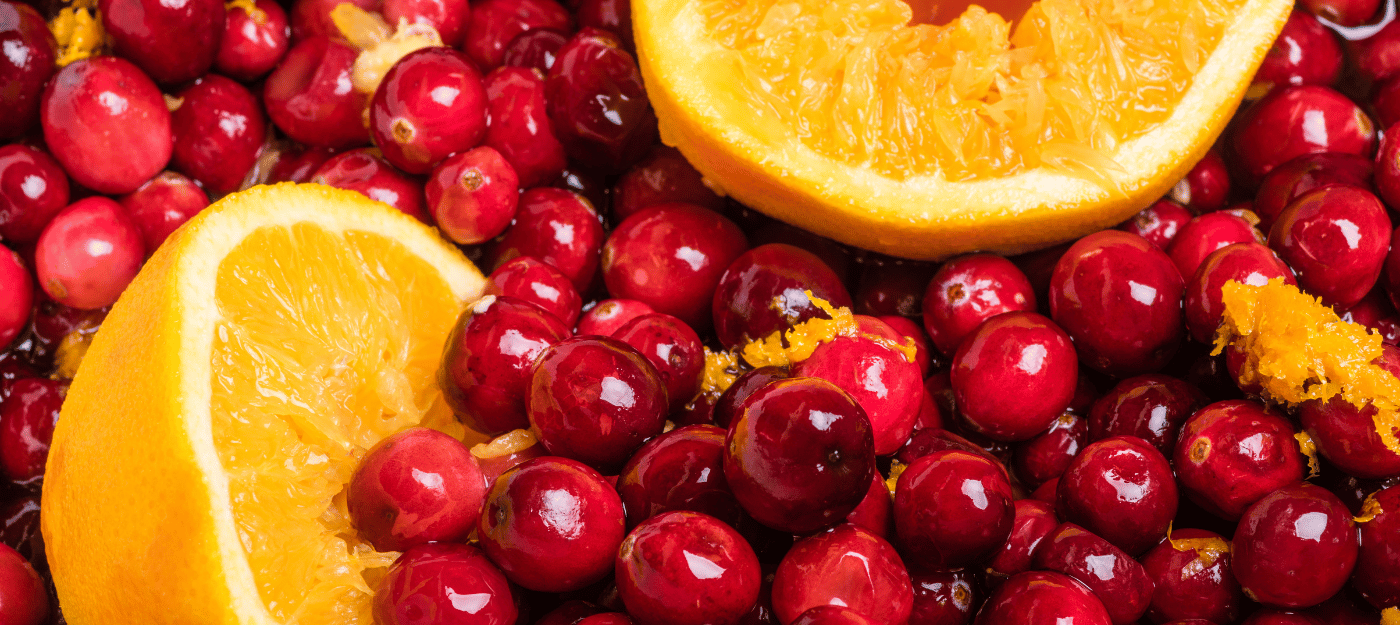
4.5 Leeks: A Healthy Addition to Your Gym Diet
While leeks may not be as popular as some other fall vegetables, they offer unique health benefits that make them worth incorporating into your gym diet:
- Potential Anti-Cancer Properties: Leeks contain compounds that have been studied for their potential anti-cancer effects, making them an excellent addition to a balanced diet.
- Contribute to Healthy Vision: Leeks are rich in vitamin A and other antioxidants that support eye health and maintain good vision.
- Flavorful Addition to Meals: From soups to stir-fries, leeks add a mild onion-like flavor to dishes and can be enjoyed in various ways.
Leeks are an excellent choice for adding both flavor and nutrition to your fall meals. Whether you’re looking to build muscle or recover from intense workouts, these vegetables have got you covered. Let’s dive into the reasons why leeks should be on your grocery list:
1. Potential Anti-Cancer Properties
Leeks belong to the same family as onions and garlic, known as the Allium family. These veggies contain compounds that have been studied for their potential to fight against cancer. Specifically, the sulfur compounds found in leeks, like allicin, may help lower the risk of certain types of cancer, including stomach and colorectal cancer.
2. Contribution to Healthy Vision
Your eyes need proper nourishment too! Leeks offer a good amount of antioxidants like vitamin C and beta-carotene, which are crucial for maintaining good eye health. Vitamin C acts as a shield against oxidative stress, while beta-carotene can help reduce the likelihood of age-related macular degeneration and cataracts. 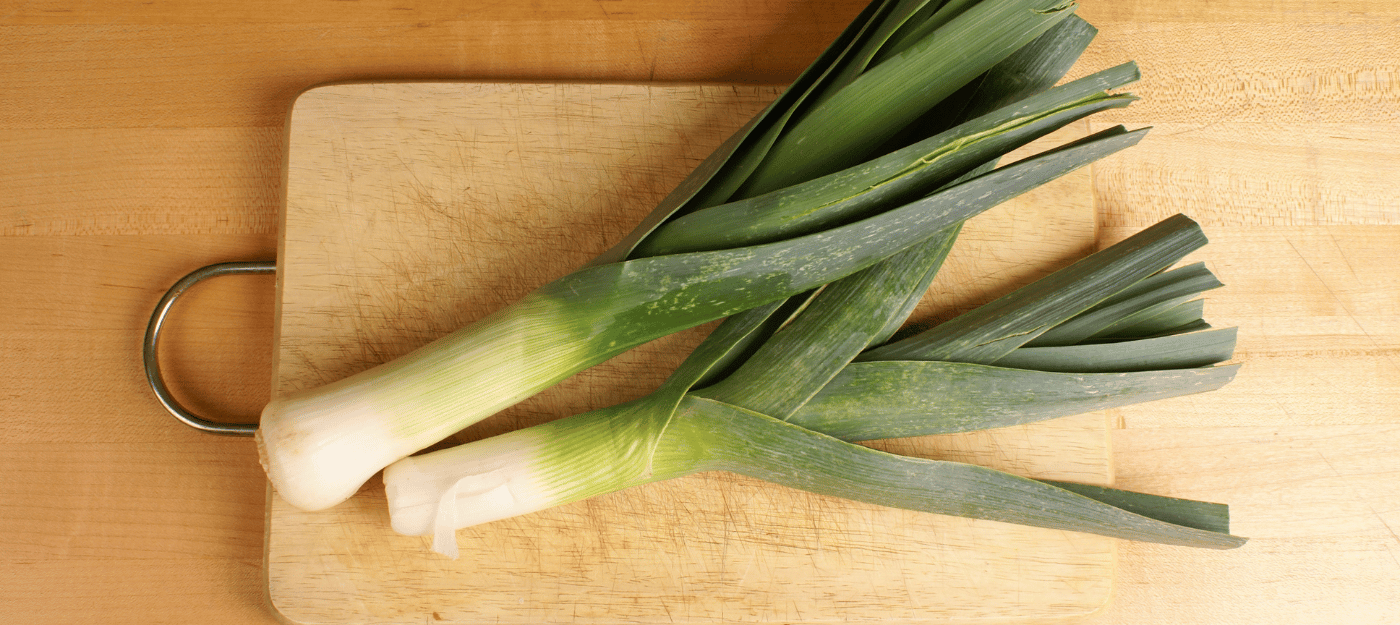
3. Supports Digestive Health
A healthy gut is vital for overall well-being, including optimal nutrient absorption and immune function. Leeks are packed with dietary fiber, which plays a key role in keeping your digestive system happy. Fiber adds bulk to your stool, promoting regular bowel movements and preventing constipation. Moreover, leeks contain prebiotic fibers that serve as nourishment for beneficial gut bacteria, supporting a thriving gut microbiome. So how can you incorporate leeks into your gym diet? Here are some ideas:
- Add chopped leeks to your favorite soups or stews.
- Include them in stir-fries alongside other veggies and protein sources.
- Toss sliced leeks into salads for an extra crunch and flavor boost.
By trying out these simple yet delicious ways to enjoy leeks, you’ll not only enhance the taste of your meals but also reap the potential benefits they offer for muscle growth and repair.
4.6 Sweet Potatoes
Sweet potatoes are not only delicious but also highly nutritious. Here’s why you should consider adding them to your gym diet:
- High in Vitamin A: Just like winter squash, sweet potatoes are packed with vitamin A, which is essential for healthy skin and immune function.
- Fiber for Satiety: The fiber content in sweet potatoes helps promote feelings of fullness, making them a satisfying addition to your post-workout meals.
- Versatile Ingredient: From baked sweet potato fries to mashed sweet potatoes, there are endless possibilities for incorporating this nutrient-dense vegetable into your gym diet.
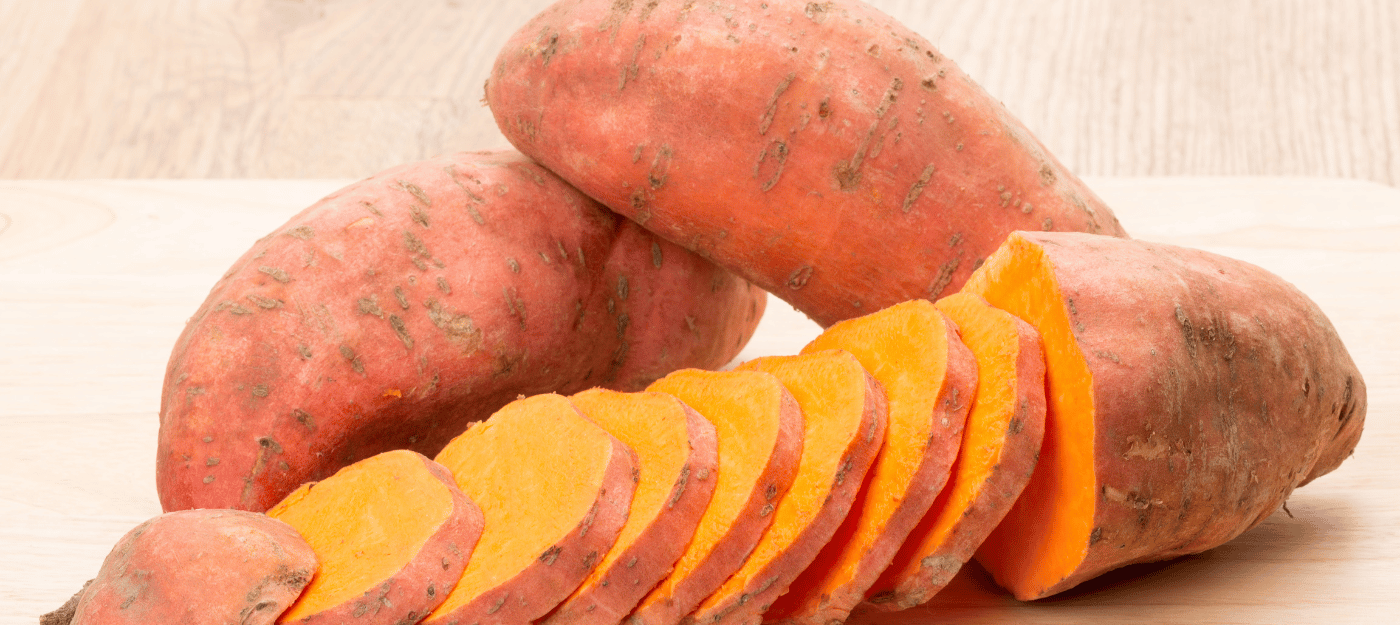
4.7 Brussels Sprouts
Brussels sprouts may not be everyone’s favorite vegetable, but they offer a range of health benefits that make them worth considering for muscle growth and repair:
- Support Detoxification Processes: Brussels sprouts contain compounds that support the body’s natural detoxification processes, helping to remove harmful substances from the body.
- Provide Vitamin K: Vitamin K is important for bone health and blood clotting. Brussels sprouts are an excellent source of this essential nutrient.
- Delicious When Roasted: Roasting Brussels sprouts brings out their natural sweetness and enhances their flavor. Try tossing them with olive oil and seasoning before popping them in the oven for a tasty side dish.
Brussels Sprouts: A Nutritional Powerhouse for Your Gym Diet
When it comes to healthy fall foods for muscle growth and repair, Brussels sprouts definitely deserve a spot on your gym diet. These small, cabbage-like vegetables are not only delicious but also packed with essential nutrients that can enhance your sports performance and support your fitness goals.
Why You Should Include Brussels Sprouts in Your Gym Diet
Let’s take an in-depth look at the nutritional benefits of Brussels sprouts:
- Detoxification Support: Brussels sprouts contain compounds called glucosinolates, which are known for their role in supporting detoxification processes in the body. These compounds help activate enzymes that promote the elimination of harmful toxins and protect against oxidative stress.
- Vitamin K: Brussels sprouts are an excellent source of vitamin K, a nutrient that plays a crucial role in blood clotting and bone health. Vitamin K is necessary for the production of proteins involved in these processes, making it essential for maintaining overall wellness.
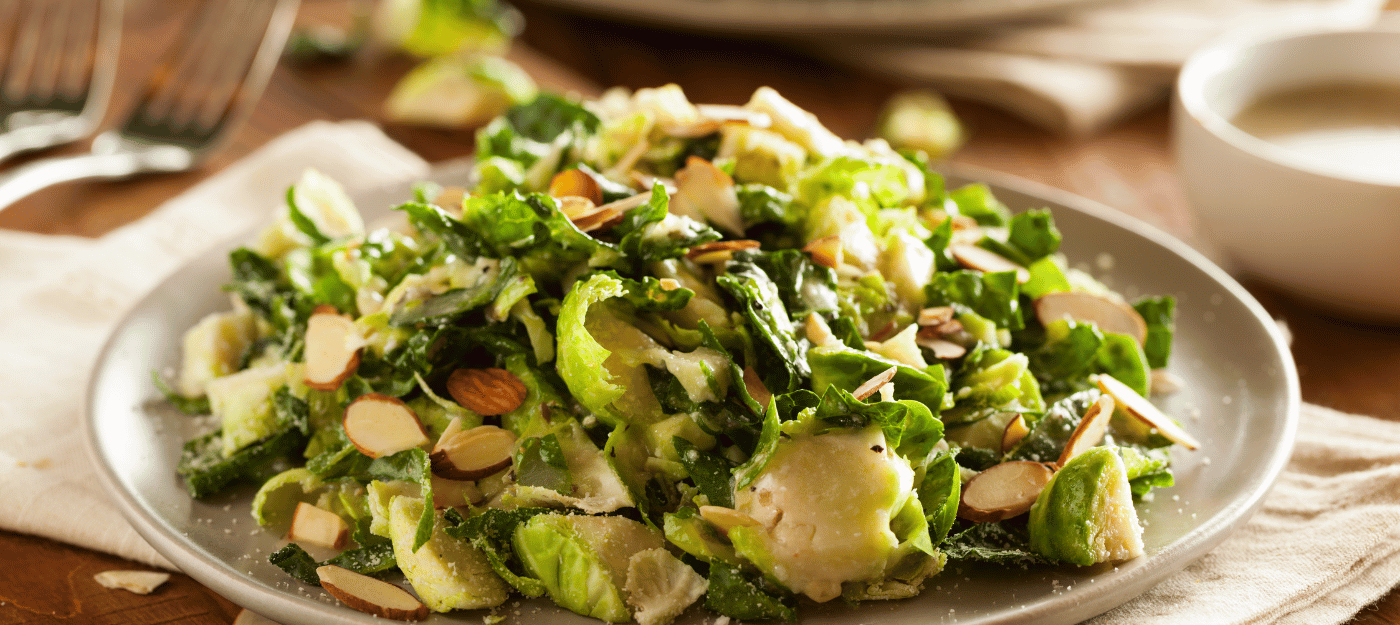
How to Enjoy Brussels Sprouts in Your Meals
Incorporating Brussels sprouts into your gym diet can provide you with these incredible health benefits. Whether you roast them, sauté them, or add them to salads, there are plenty of delicious ways to enjoy this nutritious fall vegetable.
Tip: Try roasting Brussels sprouts with olive oil, garlic, and a sprinkle of sea salt for a simple yet flavorful side dish.
By exploring different fruits and vegetables that are in season, you can take advantage of their unique nutritional profiles and maximize the benefits they offer. So, next time you’re planning your meals for the week, don’t forget to include Brussels sprouts and other seasonal produce to fuel your fitness journey!
4.8 Pears
Pears are a juicy and refreshing fruit that can provide numerous benefits to support your fitness journey. Here’s why you should consider including pears in your gym diet:
- High in Fiber: Pears are a great source of dietary fiber, which can help regulate digestion and promote regularity.
- Potential Anti-Inflammatory Effects: Some studies suggest that the antioxidants found in pears may have anti-inflammatory properties, aiding in post-workout recovery.
- Enjoy as a Snack or in Recipes: Pears can be enjoyed on their own as a snack or added to salads, smoothies, or baked goods for added flavor and nutrients.
Pears are not only a delicious fall fruit but also offer numerous health benefits that support muscle growth and repair. Here is an in-depth look at the nutritional benefits of pears:
High Fiber Content
Pears are rich in dietary fiber, which is essential for digestive regularity. Consuming an adequate amount of fiber can help prevent constipation and promote overall gut health. 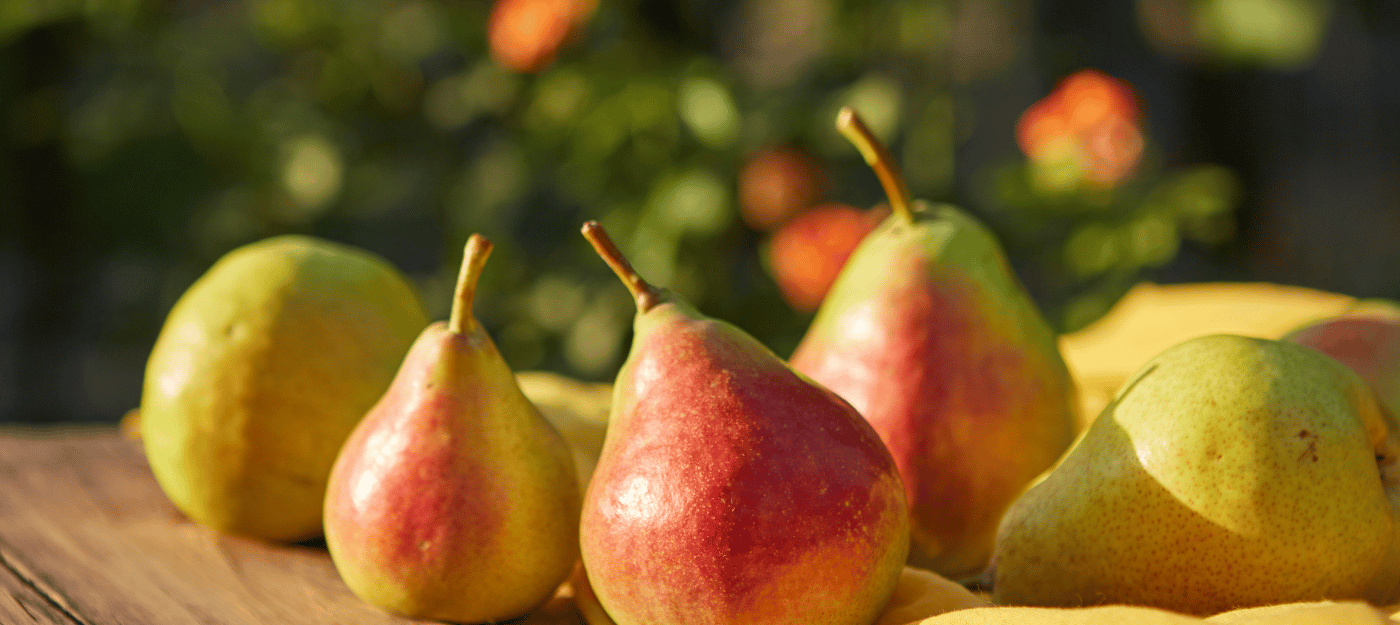
Anti-Inflammatory Effects
Pears contain antioxidants and flavonoids that have been shown to possess anti-inflammatory properties. These compounds help reduce inflammation in the body, which is important for optimizing recovery after intense workouts. Including pears in your gym diet can provide you with these benefits and more. Their sweet and juicy flavor makes them a versatile fruit that can be enjoyed in various ways:
- Snack: Eat them fresh as a snack.
- Salad: Add them to salads for a refreshing twist.
- Smoothie: Incorporate them into smoothies for a burst of natural sweetness.
By incorporating pears into your pre and post-workout meals, you can enhance your fitness journey and support your overall health. Remember to choose ripe pears that are firm yet slightly soft to ensure maximum flavor and nutritional value. Note: It’s important to mention that while fruits are a great addition to a gym diet, they should be consumed in moderation as part of a balanced meal plan. Consult with a registered dietitian or nutritionist to personalize your dietary needs.
4.9 Pecans
Pecans not only add a delicious crunch to your meals but also provide valuable nutrients that support muscle growth and repair:
- Heart-Healthy Fats: Pecans are a rich source of monounsaturated fats, which have been linked to heart health.
- Supply Essential Nutrients: Pecans provide essential minerals like magnesium and zinc, which play a role in muscle function and recovery.
- Ideal for Homemade Trail Mix: Whether you’re snacking on pecans alone or mixing them with dried fruits and dark chocolate, they make a nutritious addition to your gym diet.
By incorporating these 10 healthy fall foods into your gym diet, you can fuel your fitness journey while enjoying delicious flavors and reaping the benefits of their nutritional profiles. Experiment with different recipes and combinations to find what works best for you and your fitness goals. Remember, a well-rounded diet is key to supporting your overall health and maximizing your workout performance. Pecans are not only a delicious snack but also a nutritious addition to your diet. They are packed with essential nutrients that can benefit your overall health, especially when it comes to heart health and antioxidant protection.
Heart-Healthy Fats
Unlike other nuts, pecans contain mostly monounsaturated fats, which are considered heart-healthy fats. These fats have been shown to help lower bad cholesterol levels and reduce the risk of heart disease.
Antioxidant Properties
Pecans are also rich in antioxidants, including vitamin E and polyphenols. These compounds help protect your cells from damage caused by harmful free radicals, which can contribute to chronic diseases like cancer and heart disease. 
Other Nutrients
In addition to their heart-healthy fats and antioxidant properties, pecans provide a good source of:
- Fiber: Promotes healthy digestion and can help with weight management.
- Magnesium: Supports bone health and plays a role in energy metabolism.
- Zinc: Important for immune function and wound healing.
- Vitamin B6: Helps your body make neurotransmitters, which are important for brain function.
How to Enjoy Pecans
There are many ways to incorporate pecans into your diet. Here are some ideas:
- Add them to salads for a crunchy texture.
- Use them as a topping for oatmeal or yogurt.
- Include them in baked goods like muffins or cookies.
- Enjoy them on their own as a quick and satisfying snack.
Remember, moderation is key when it comes to nuts as they are calorie-dense. Stick to about a handful (1 ounce) of pecans per day to reap their nutritional benefits without going overboard on calories. So next time you’re looking for a healthy snack or ingredient to add to your meals, give pecans a try!
4.10 Cauliflower: A Nutritious Addition to Your Fall Diet
Cauliflower is a versatile and nutritious vegetable that can be a great addition to your fall diet. It is not only delicious but also supports muscle growth and repair with its specific health properties. Here’s an in-depth look at the nutritional benefits of cauliflower:
Vitamins C and K
Cauliflower is packed with essential vitamins, including vitamin C and vitamin K. Vitamin C is known for its role in supporting immune function and promoting collagen synthesis, which is important for healthy skin and connective tissues. Vitamin K plays a crucial role in bone health, as it helps regulate calcium levels and promotes proper bone mineralization.
Antioxidants
Cauliflower contains various antioxidants, such as beta-carotene, quercetin, and kaempferol. These antioxidants help protect the body against oxidative stress and inflammation, which can be particularly beneficial for athletes who engage in intense workouts. Antioxidants also play a role in reducing muscle damage caused by exercise and enhancing recovery. Here are some ideas on how to incorporate cauliflower into your gym diet:
- Roasted Cauliflower: Toss cauliflower florets with olive oil, salt, and pepper, then roast them in the oven until golden brown. This simple yet delicious dish can be a tasty side or a main course when paired with lean protein.
- Cauliflower Rice: Grate cauliflower using a food processor or a grater to create small rice-like pieces. Sauté the cauliflower rice with your favorite seasonings and vegetables for a low-carb alternative to traditional rice.
- Cauliflower Mash: Steam cauliflower until tender, then mash it with garlic, Greek yogurt, and herbs for a nutritious twist on traditional mashed potatoes.
By incorporating cauliflower into your gym diet, you can benefit from its rich supply of vitamins C and K, as well as its antioxidants. Get creative with your cauliflower recipes to enjoy the delicious taste and reap the nutritional rewards. Remember to consult with a healthcare professional or registered dietitian before making any significant changes to your diet. 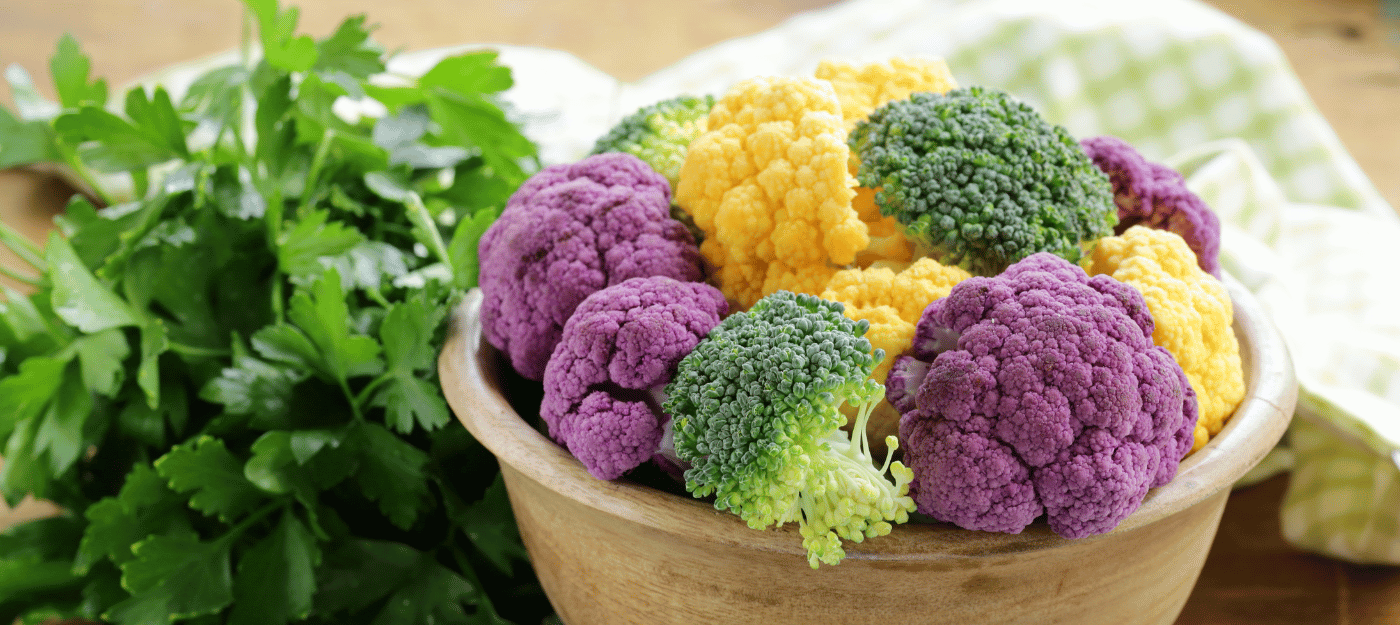
Conclusion
Fueling your body with the right nutrition is crucial for supporting workout performance and achieving your fitness goals. Incorporating nutrient-dense fruits into your gym diet can provide numerous benefits, including enhanced energy levels, improved recovery, and optimized muscle growth. Here are some final thoughts to keep in mind:
- Nourish your body with a variety of fruits: This is essential for supplying it with important vitamins, minerals, and antioxidants that promote overall health and well-being.
- Experiment with different fruits: Try out various options mentioned in this article to find ones that you enjoy and that fit well into your pre and post-workout meals.
- Consider incorporating specific fruits: Include fruits like winter squash, pumpkin, apples, cranberries, leeks, sweet potatoes, Brussels sprouts, pears, pecans, and cauliflower into your gym diet for their specific nutritional benefits.
- Remember the importance of calcium-rich fruits: Fruits like winter squash and Brussels sprouts can also contribute to bone health and support your fitness journey.
Share this resource with other fitness enthusiasts who may find it helpful in their quest for a well-rounded gym diet. Together, we can all fuel our fitness with healthy fruits and achieve our goals. Note: Always consult with a healthcare professional or registered dietitian before making significant changes to your diet or exercise routine.



